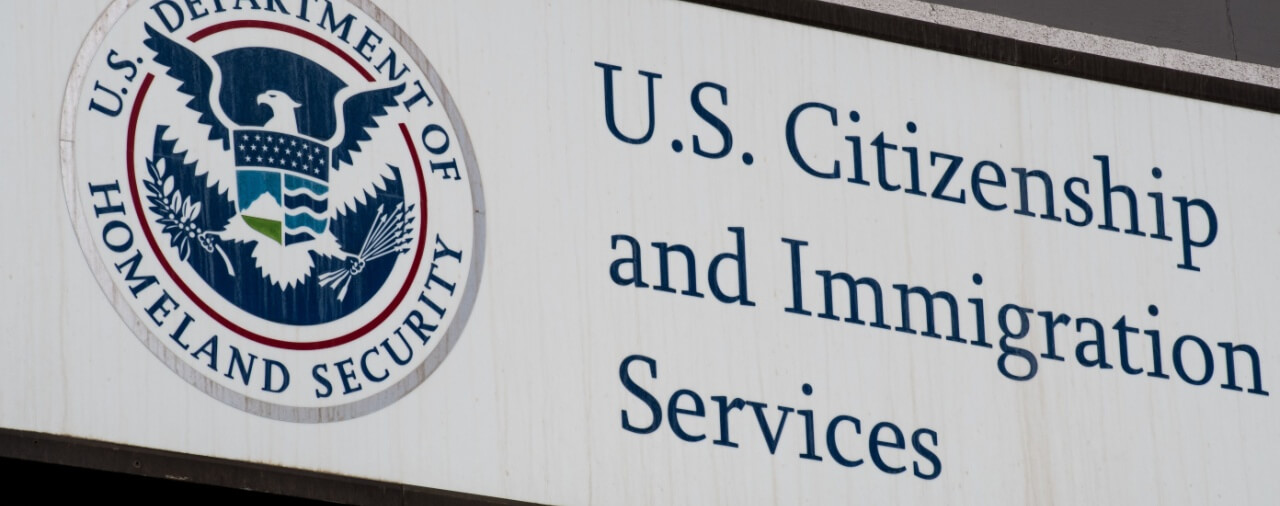On February 28, 2025, the United States Citizenship and Immigration Services (USCIS) issued a Policy Memorandum (PM) titled “NTA issuance in Cases Involving Inadmissible and Deportable Aliens”. The PM provides guidance on when the USCIS will issue an NTA to an alien who applies for a benefit and has his or her benefit request denied.
Understanding the Terms
NTA refers to a Notice to Appear. The government serves an alien with an NTA (either in person or by mail) to initiate removal proceedings against the alien. The NTA is a charging document and it informs the alien of the legal basis for the government’s immigration charges.
For purposes of this article, benefit request refers to applications for benefits with the USCIS. The PM specifically addresses when the USICS may issue a NTA when it denies a benefit request.
New Guidance
The denial of a benefit request itself does not make an alien removable. However, an alien whose benefit request is denied may be removable on other grounds. There are many aliens in the United States who may be removable for one reason or another but who are not in removal proceedings. The PM primarily covers cases where an alien who the government believes is removable applies for a benefit and has the benefit request denied.
Non-covered cases
As a threshold matter, the PM does not address cases in which statutes or regulations provide clear rules governing the NTA issuance upon the denial of a benefit request. These circumstances include the termination of conditional permanent resident status after the denial of a Form I-751, Petition to Remove Conditions on Residence (Removal of Conditions section), termination of refugee status, denials of Haitian Refugee Immigration Fairness Act adjustment of status applications, Asylum, Nicaraguan Adjustment and Central American Relief Act (NACARA) 203, and Credible Fear cases, and NTA-related procedures involving Deferred Action for Childhood Arrivals (DACA). With these exceptions noted, we can move on to the new guidance.
Terrorism, Security, and Related Grounds
The USCIS will prioritize the issuance of NTAs in cases where an alien is described in 212(a)(3) (inadmissibility for security or related grounds) or 237(a)(4) (removability for security or related grounds).
Criminal Convictions
“USCIS will issue an NTA against removable aliens if they have been arrested, charged with, or convicted of a criminal offense if the benefit request is denied or withdrawn,” provided the alien is not otherwise subject to mandatory detention under INA 236(c).
Fraud and Misrepresentation
“USICS will issue an NTA in cases presenting substantiated fraud or material misrepresentation” in the immigration process. “When fraud or material misrepresentation is part of the record and the alien is removable, USCIS will issue an NTA upon adverse action of the benefit request, or other unfavorable determination or action.” The USCIS will also issue NTAs when it believes that the alien is removable for fraud or willful misrepresentation even when the benefit request in question was denied on other grounds. If the alien is removable for reasons other than fraud or willful misrepresentation, the USCIS is not required to include a fraud or willful misrepresentation charge on the NTA.
TPS Denials
The PM “does not change NTA or notification procedures for Temporary Protected Status (TPS) cases…” We have covered TPS on site. However, the PM does direct USCIS officers to issue NTAs in cases where TPS is denied, the alien is otherwise removable or lacks authorization to be in the United States, and the regulations do not provide grounds for not issuing the NTA. However, the PM does allow for USCIS officers to exercise discretion if “there is a sufficient reason to delay issuance of, or to not issue the NTA.”
General Denials
As a general matter in cases not already covered, “USCIS will issue an NTA, where upon issuance of an unfavorable decision on a benefit request, the alien is not lawfully present in the United States.”
Certain Nonimmigrant Employment Petitions
The PM addresses employment-based visa petitions separately. In most employment cases, the petitioner is the employer rather than the alien. However, in cases where the alien beneficiary is the signatory on the Form I-129, Petition for Nonimmigrant Worker, USCIS will issue an NTA upon issuing an unfavorable decision of the alien beneficiary is not lawfully present or otherwise removable. The PM does not provide for the NTA issuance upon the denial of Forms I-129 where the potentially removable alien is not a signatory on the petition. (Work Visas section.)
Naturalization Denials
Lawful permanent residents who apply for naturalization will only be issued NTAs under one of two circumstances. First, an NTA will be issued if the alien is removable under section 237 of the INA. In these cases, USCIS may issue the NTA even if the alien may also be eligible for naturalization. Secondly, USCIS may issue an NTA if it determines that the alien was not inadmissible at the time he or she was admitted as a lawful permanent resident or adjusted status, which would also render him or her ineligible for naturalization. (Naturalization section.)
Upon Request of Alien
While the PM focuses on the NTA issuance after denying benefit requests, it notes that USCIS officers may issue NTAs in limited circumstances upon the request of the removable alien. This addresses scenarios wherein the alien may want to seek lawful status or other forms of relief in removal proceedings. “USCIS only considers such requests when the alien is removable from the United States and has previously filed a benefit request with USCIS.” Moreover, USCIS will only issue the NTA when it has “sufficient records, evidence, and other documentation necessary to issue a legally sufficient NTA.” These requests will be “disfavored” and only issued when there are “compelling and exceptional circumstances.” Circumstances may include, but are not limited to:
Family Reunification: The alien qualifies as the dependent spouse or child of a principal asylum applicant and the principal asylum applicant is being placed in removal proceedings.
Expedited Removal: Cases where the alien has been referred for a credible fear screening.
Asylum: Cases where the asylum applicant withdraws his or her application, where the USCIS rescinds asylum status for want of jurisdiction and the alien is not already in removal proceedings, where an alien had an asylum application denied by USCIS while he or she was in lawful status but his or her status has since expired, or cases where the asylum applicant’s application was previously referred to the Immigration Court but the Court dismissed or terminated the removal proceedings. (asylum and refugees section.)
NACARA: Cases where an applicant’s Form I-881 was dismissed because alien was not deportable or removable but alien is now deportable or removable or cases where USCIS granted NACARA 203 relief to aliens who were not eligible at the time of the grant.
Certain Form I-90 Denials: Cases where USCIS denies a Form I-90, Application to Replace Permanent Resident Card (Green Card) because it determines that the alien abandoned his or her permanent resident status.
Parole Termination: Cases where an alien’s parole under INA 212(d)(5)(A) expires or is terminated and the alien is not otherwise lawfully present in the United States.
Prosecutorial Discretion
The PM does not preclude USCIS officers from declining to grant an NTA in cases where the PM suggests that an NTA should be issued. However, it provides additional guidelines for USCIS officers to make prosecutorial discretion requests to their superiors and for those requests to be documented. The PM makes clear that prosecutorial discretion may only be exercised on a case-by-case basis.
Conclusion
The new PM suggests that the USCIS will be more aggressive going forward in issuing NTAs to aliens whose benefit requests are denied and who are otherwise removable. However, it remains to be seen how the PM will be implemented in the real world. For example, one article about the new policy notes that the first Trump Administration issued similar guidance in 2018, but that the policy “was never fully implemented”. As a general matter, we recommend that most aliens making benefit requests with the USCIS consult with an experienced immigration attorney. It is important to remember that there is no one size fits all mode of advice and that each individual case presents its own facts and circumstances. The PM does highlight that legal assistance is especially important in cases where the alien does not have legal status or may otherwise be subject to removal. This new guidance highlights that aliens who are not lawfully present or otherwise subject to removal should be aware of the possibility that the denial of a benefit request may lead to the initiation of removal proceedings, depending on the facts and circumstances of the particular case.





